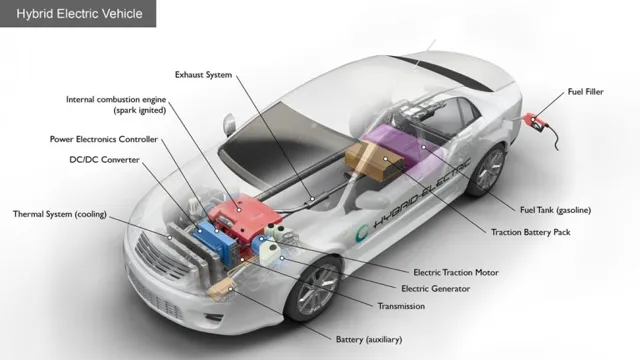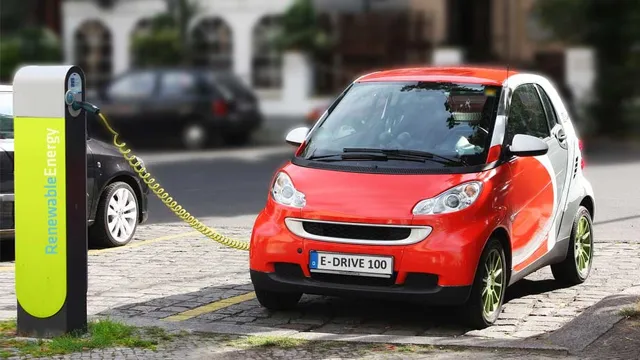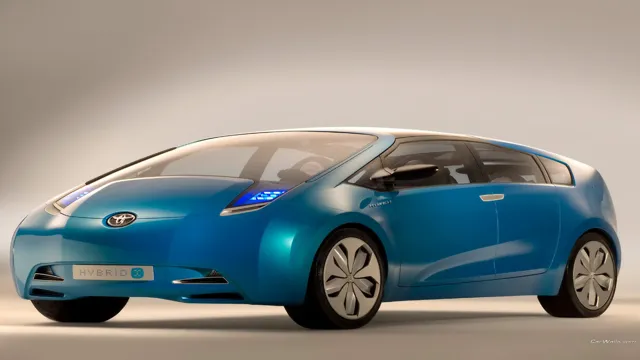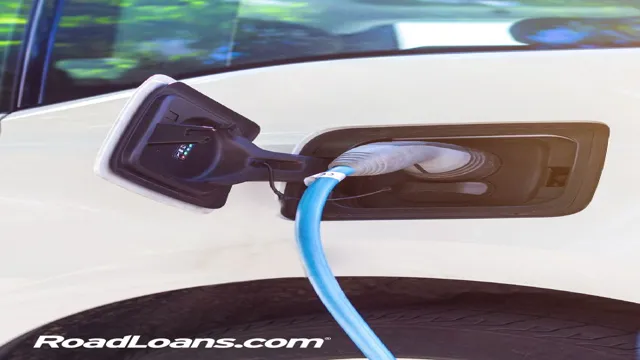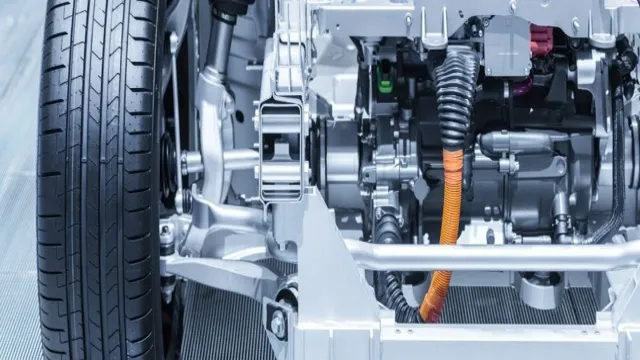Unlocking the Secret: How Electric Cars are Cheaper to Maintain and Save You Money
Are you tired of frequent trips to the auto repair shop or consistently hefty bills for maintenance and repairs on your traditional gasoline-powered car? If so, it may be time to switch to an electric vehicle. Not only are electric cars better for the environment, but they are also cheaper to maintain. How is this possible, you might ask? Well, it’s all because of the stark differences between the way that gas-powered and electric cars operate.
In this blog post, we’ll explore the various reasons why electric cars are more affordable to maintain compared to their gas-powered counterparts. So, hop in and let’s take a ride through this fascinating topic!
Less Complex Maintenance
One of the major reasons why electric cars are cheaper to maintain is due to their less complex systems. Unlike traditional gasoline vehicles, electric cars have fewer moving parts and require less upkeep. Electric cars don’t need oil changes, and their brakes last longer due to regenerative braking, which uses the car’s electric motor to slow down the vehicle and recharge the battery.
Additionally, electric cars don’t have belts or transmissions, which saves owners money on potential repairs and replacements. With electric cars, there’s also no need for exhaust systems, spark plugs, fuel filters, and other parts that wear down over time, further reducing maintenance costs. By opting for an electric car, drivers can enjoy significant savings on maintenance expenses over the lifetime of the vehicle.
Fewer Moving Parts
When it comes to maintenance, fewer moving parts means less complexity and fewer chances of something going wrong. This is true for all kinds of machines and appliances, including vehicles and household appliances, and it’s no different in the world of technology. With fewer moving parts, there are fewer things to break or wear out, resulting in lower maintenance costs and less downtime.
This is especially important for businesses that rely on their technology to keep running smoothly. By investing in systems with fewer moving parts, businesses can reduce their overall maintenance costs, save time, and keep their operations up and running without any unexpected surprises. So, the next time you’re looking to upgrade your technology, consider opting for a system with fewer moving parts to make your life easier.
No Oil Changes Needed
One of the many advantages of electric vehicles is that they don’t require oil changes. Yes, you read that right. NO oil changes needed! Unlike gas-powered cars that rely on oil to keep the engine lubricated, EVs function without any combustion or engine oil.
This means less complexity in vehicle maintenance and a significant reduction in maintenance costs. Instead of oil changes, EVs may require periodic battery maintenance, tire rotations, and brake replacements. Importantly, the frequency of these maintenance procedures is much lower for EVs than gas-powered cars.
Additionally, creating less waste oil has a positive environmental impact, making EVs a more sustainable transportation option. Overall, the absence of oil changes in EV maintenance is just one of the many benefits EVs offer to drivers today.
Lower Fuel and Energy Costs
When it comes to electric vehicles, one of the biggest benefits is lower fuel and energy costs. Because electric cars operate on electricity rather than gasoline or diesel, their fuel costs are significantly lower. This means that you can spend less money on gas and more money on the things that really matter.
Additionally, electric cars are more energy-efficient than traditional gasoline vehicles, which means they require less maintenance. This translates to fewer repairs and less money spent on upkeep over time. Overall, electric cars are a great choice for anyone looking to save money on their daily commute and reduce their carbon footprint.
So what are you waiting for? Go electric and start enjoying the many benefits of this exciting new technology!
Electricity is Cheaper Than Gasoline
When it comes to fuel and energy costs, electricity is a more affordable option than gasoline. Not only is electricity cheaper per gallon equivalent, but electric vehicles also have higher energy efficiency ratings compared to gas-powered vehicles. So, you end up spending a lot less in the long term without sacrificing performance or convenience.
Additionally, the price of electricity is more stable than that of gasoline, which is subject to fluctuation based on factors like global supply and demand. When you consider all of these factors, it’s clear that electricity is the way to go if you want to save money while reducing your carbon footprint.
Less Maintenance means Lower Costs
When it comes to saving money on your heating system, you might not immediately think about maintenance. But the truth is, regular maintenance can lower fuel and energy costs in the long run. By keeping your heating system clean and well-oiled, it runs more efficiently, which means it uses less energy to heat your home.
This not only saves you money on your energy bill, but also decreases your carbon footprint. Neglecting maintenance, on the other hand, can lead to higher energy usage and more wear and tear on your heating system in the long run, ultimately costing you more money. So, while maintenance may seem like an extra expense, it’s an investment that pays off in the end.
Government Incentives and Tax Credits
One of the main reasons that electric cars are cheaper to maintain is due to government incentives and tax credits. Many countries and states offer incentives and rebates for electric car owners, such as reduced registration fees, exemptions from tolls and HOV lanes, and even cash rebates. Additionally, electric car owners may also qualify for federal tax credits of up to $7,500.
These incentives can help offset the higher upfront costs of purchasing an electric car and make them more affordable over time. Furthermore, electric cars require less maintenance than traditional gas-powered cars due to their simpler design. They don’t have oil to change, spark plugs to replace, or transmissions to service, leading to lower maintenance costs over the life of the vehicle.
Overall, government incentives and tax credits play a significant role in making electric cars more accessible and affordable to consumers.
Federal and State Incentives
If you’re considering purchasing an electric vehicle, you may be eligible for federal and state incentives to help offset the cost. The federal government offers a tax credit of up to $7,500 for qualifying vehicles, based on the battery size and range. Additionally, many states offer incentives such as rebates, tax credits, or exemptions from certain fees to encourage the adoption of electric vehicles.
It’s important to research what incentives are available in your area and determine if you qualify. Not only can these incentives help make an electric vehicle more affordable, but they also contribute to reducing greenhouse gas emissions and improving air quality. So, don’t forget to take advantage of the potential government incentives and tax credits available to electric vehicle buyers.
Lowering the Total Cost of Ownership
Lowering the total cost of ownership of any vehicle includes a number of factors. One potential way to bring down the expenses associated with electric cars is through government incentives and tax credits. These can vary depending on your state or country, but many places offer rebates or deductions for purchasing an electric vehicle.
For instance, in the US, taxpayers can access a federal tax credit of up to $7,500 for purchasing a new EV. Additionally, many states offer their own incentives, such as California’s Clean Vehicle Rebate Project. These incentives can help bring down the upfront costs of an EV, making it a more affordable option for many people.
Furthermore, there are often ongoing benefits to owning an electric car, such as reduced fuel costs and decreased maintenance expenses. Overall, taking advantage of government incentives and tax credits can be a smart way to lower the total cost of ownership of an electric vehicle.
Conclusion: Investing in Electric Cars Pay Off
In conclusion, electric cars offer a cost-effective alternative to traditional gas-guzzlers in terms of maintenance. Unlike the complex internal combustion engines found in petrol cars, electric cars have fewer moving parts and simpler systems. This means they require less maintenance and experience fewer breakdowns, ultimately saving drivers a bundle in repair costs.
So, if you’re looking for a smarter, more sustainable way to drive, consider making the switch to electric and enjoy the joy of fewer trips to the mechanic and more money in your pocket!”
FAQs
What makes electric cars cheaper to maintain than traditional gasoline cars?
Electric cars have fewer moving parts, which minimizes the wear and tear that may lead to costly repairs in gasoline cars. Additionally, electric cars do not require oil changes and have regenerative braking, which reduces brake pad replacements.
Are there any tax incentives or subsidies offered for buying an electric car that can contribute to lower maintenance costs?
Yes, there are various federal and state tax incentives and subsidies offered for buying an electric car, including tax credits, rebates, and exemption from certain taxes and fees. These can significantly reduce the upfront cost of purchasing an electric car, resulting in lower maintenance costs over the lifetime of the vehicle.
Do electric cars require less maintenance over time compared to gasoline cars?
Yes, electric cars require less maintenance over time compared to gasoline cars due to their simpler design and fewer moving parts, resulting in fewer repairs and upkeep costs. Moreover, electric cars have longer lifespans compared to gasoline cars, which means they require fewer replacements of major components like engines and transmissions.
Can the cost savings from lower maintenance expenses offset the higher initial cost of purchasing an electric car?
Yes, the cost savings from lower maintenance expenses can offset the higher initial cost of purchasing an electric car over time. The cost savings vary depending on the make and model of the electric car, driving habits, and other factors, but in general, electric cars cost less to maintain over their lifespan.
